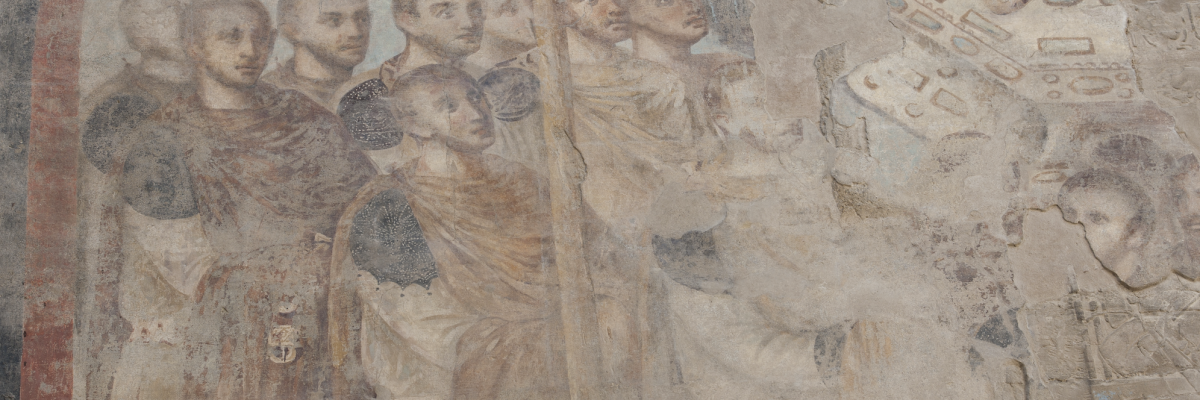
In theological conversations with Muslims, you may come across an argument that goes something like this:
The original message of the Bible has been corrupted by centuries of copying, translating, and passing down information. The result is a mishmash of contradictions and errors, the consequence of which is that the original gospel message is lost. In contrast, the manuscripts of the Quran are uniform and unaltered. Their textual accuracy and word meanings are clear, and as a result, whereas God’s message in the Bible is unreliable, we can trust that God’s message has been faithfully transmitted in the Quran.
There are three objections here. The first is that the Bible has been corrupted and the original divine message lost. The second is that the Quran has not been subject to “corruption,” but the Bible has, and therefore, third, God’s message has been faithfully preserved only in the Quran. Here we will examine the first of these objections.
Corruption of the Bible?
The basis of Muslim anti-Christian polemics against the Bible is the idea that Jewish and Christian communities received the true (Islamic) scripture but that the true message was suppressed and the text itself was physically altered. For example, a Muslim hadith (canonized tradition about the words and deeds of Muhammad) states the following:
O community of Muslims, how is it that you seek wisdom from the people of the book? Your book, brought down upon his prophet—blessings and peace of God upon him—is the latest report about God. You read a book that has not been distorted, but the people of the book, as God related to you, exchanged that which God wrote, changing the book with their hands (Sahih Muslim).
The “people of the book” refers to Jews and Christians. Notre Dame professor Gabriel Reynolds, in his article On the Quranic Accusation of Scriptural Falsification and Christian Anti-Jewish Polemic, explains that when one looks at the Quran, what emerges is that it is mostly concerned with the “misuse of scripture.” These are the quranic verses pertinent to the topic:
Sura 3:78: And there is indeed a group among them who twist their tongues with the book, that you may suppose it to be from the book. But it is not from the book. And they say, “It is from God,” though it is not from God. And they knowingly speak a lie against God.
Sura 4:46: Among those who are Jews are those who distort the meaning of the word, and say, “We hear and disobey,” and “Hear, as one who hears not!” and “Attend to us!” twisting their tongues and disparaging religion. And had they said, “We hear and obey” and “Listen” and “Regard us,” it would have been better for them and more proper. But God cursed them for their disbelief, so they believe not, save a few.
The first verse clearly deals with the misinterpretation of the text, not changing the text. The second verse does the same.
Another verse that echoes this sentiment is Quran 5:13-15:
Then for their breaking of their covenant, we cursed them and hardened their hearts. They distort the meaning of the word, and have forgotten part of that whereof they were reminded. Thou wilt not cease to discover their treachery, from all save a few of them. So pardon them, and forbear. Truly God loves the virtuous. And with those who say, “We are Christians,” We made a covenant. Then they forgot part of that whereof they were reminded. So we stirred up enmity and hatred among them, till the day of resurrection. God will inform them of what they used to do. O people of the book! Our messenger has come unto you, making clear to you much of what you once hid of the book, and pardoning much. There has come unto you, from God, a light and a clear book.
Like the verses above, these do not direct criticism against the Christian or Jewish holy texts but rather against those who forget them or misinterpret them.
The only passage that mentions false scripture is Sura 2:79:
So woe unto those who write the book with their hands, then say, “This is from God,” that they may sell it for a paltry price. So woe unto them for what their hands have written and woe unto them for what they earn.
This verse does not connect men who “write the book with their hands” with the canonical Christian and Jewish scriptures. As a result, its essential aim is to censure those who write false scripture and neglect true scripture.
In support of Christian Scripture is Sura 5:47, which states, “Let the people of the gospel judge by what God has sent down therein. Whosoever judges not by that which God has sent down—it is they who are iniquitous.” This verse assumes the reliability of the gospel (and thus Christian Scripture) and expects Christians to live by it. Additionally, in Sura 3:55 God speaks to Jesus, saying, “[W]hen he said, “O Jesus, I shall take thee and raise thee unto me, and purify thee of those who disbelieved, and place those who followed thee above those who disbelieved, until the day of resurrection. Then unto me is your return, and I shall judge between you concerning that wherein you used to differ.” This verse seems to give Christians (“those who followed thee”) an elevated position and does not depict them as followers of a false scripture.
In these verses, the Quran assumes the reliability of the gospel, which is directly contrary to Muslim claims. It does not support the argument that the Bible was physically altered by Christians and Jews. This idea, we shall see, is rather the result of a later doctrinal development found in the hadith.


